- Lanxess
- Lanxess India
- Vulkanox HS Scopeblue
- Matthias Zachert
- India Application Development Centre
- tyre
- rubber
Tyre Industry Continues To Be A Key Growth Driver For Lanxess India
- By Nilesh Wadhwa
- April 14, 2025
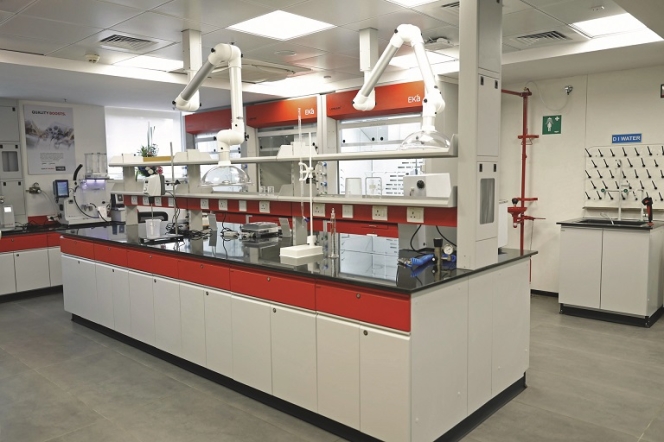
The German speciality chemicals company recently inaugurated the first India Application Development Centre (IADC) in the country’s financial capital, reinforcing its commitment and outlook for the country.
For Lanxess India, tyre industry accounts for almost 25 percent of its business, as against global average of around 10 percent. And the company’s management continues to be upbeat about the growth story for Indian tyre makers.
“India, from our point of view, will play a very important detrimental role (for Lanxess). Because when you want to grow your industry, which Prime Minister Narendra Modi clearly has as an ambition, you need the chemical industry and all their precursors. And if you want to help the Indian industry to further develop (new solutions), you need to have local application for local needs,” remarked Matthias Zachert, Chairman of the Board of Management of Lanxess.
He was speaking on the sidelines of the inauguration of the India Application Development Centre (IADC) in Thane, Mumbai, which also marks a significant commitment by the German chemical major for the country.

Lanxess is said to be the world’s largest supplier of rubber additives focusing on solutions around rubber chemicals, speciality chemicals and processing aids for the rubber industry. The company’s solutions find their way in high-performance rubber products such as tyres, treads, seals and even drive belts.
At present, Lanxess has established two production facilities in India – Jhagadia in Gujarat and Nagda in Madhya Pradesh. The tyre industry is primarily supported by Lanxess Rhein Chemie Additives Divisions, which manufactures Rhenogran and Rhenodiv at the Jhagadia facility. The company has invested over EUR 70 million in the Jhagadia facility, which not only supports the domestic customer base for Lanxess but also its customers in the Asia-Pacific region. The company has a longstanding presence in India, with representation from all 10 of its business units and a workforce of around 800 employees.
It comes as no surprise that Zachert sees India as a critical growth region for Lanxess, offering immense opportunities for collaboration and innovation.
INDIAN TYRE INDUSTRY A KEY GROWTH DRIVER
Globally, the automotive industry in particular is transitioning from being seen as a seller of products to a mobility solutions provider, what’s with new business models or service solutions.
Zachert sees that while the tyre market was consolidated for many years, it has started opening up in the last decade.
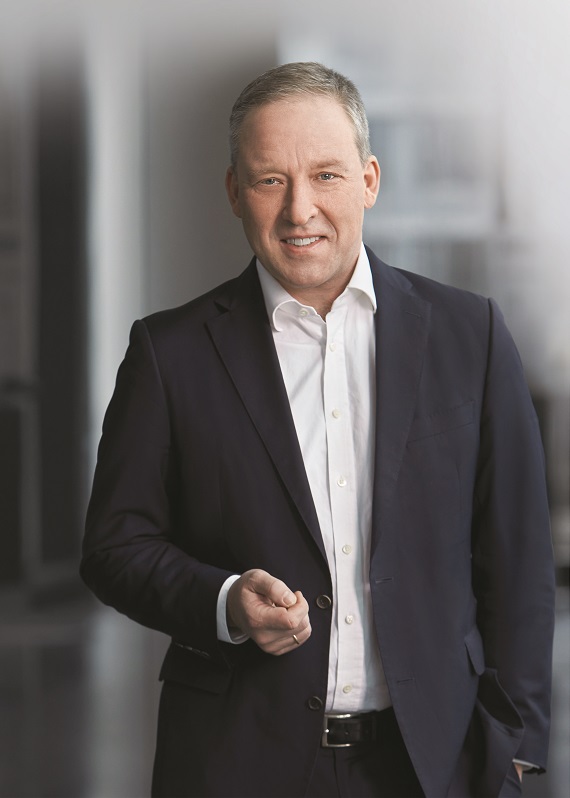
“The global tyre market has opened up, strongly driven by Chinese tyre manufacturers but also Indian tyre manufacturers. We have rising stars here in India. Mobility has always led to liberty and flexibility for mankind. This will be a trend that in the next 10-20 years is not going to vanish. Mobility will be important, which means the tyre industry is important. And therefore, I look positively at the tyre industry going forward, notably the one that is located here in India,” said an optimistic Zachert.
It is important to understand that the company has almost 25 percent of its business exposure to the Indian tyre segment, which could be amongst the highest for the company.
“For our group, the mobility exposure that we have worldwide as a company is 10 percent. We are over-proportionally present here in India, which is good and normal because the industry is expanding. The Indian tyre market is expanding not only locally but globally,” he said.
The recent setting up of IADC is part of Lanxess’ strategic focus on India as a key market and innovation hub. The strengthening of R&D will enable the company to enhance its ability to deliver high-value, specialised solutions tailored to local needs.
To begin with, the company has integrated expertise from two key businesses in India: Lubricant Additives (high-performance additives and additive systems, synthetic base fluids and ready-to-use lubricants) and Material Protection Products (antimicrobial, disinfection and preservation solutions). Going forward, the idea is to be present with all business units’ expertise at the IADC.
Namitesh Roy Choudhury, Vice-Chairman and Managing Director, Lanxess India, said, “By establishing the IADC, we are bringing our expertise closer to our Indian customers. This centre will not only support innovation but also strengthen our ability to address evolving market trends with speed and precision.”
For Lanxess India, the IADC aligns with its transformation journey towards a speciality chemicals company. The aim is to focus less on cyclical business areas and solutions for critical applications and move towards a partner for sustainable mobility or consumer protection. And the company sees India’s growing industrial base and expanding consumer markets as an ideal platform for driving such advancements.
SUPPORTING THE TYRE INDUSTRY
The production of the plain looking black tyre is more than just moulding of rubber; it is a complex process, which includes incorporating various raw materials and scientific steps to ensure that the tyres are built up to a particular specification. After all, tyres remain and are supposed to be the sole point of contact between a vehicle and the road when in motion.
Lanxess, for its part, supplies solutions across mixing, batch-off, extrusion & tread marking, tyre inspection & repair, tyre curing, green tyre spraying and tyre building processes.
According to the company, a durable car tyre is the result of a complex manufacturing process in which the tyre is built-up from various rubber compounds and reinforcing materials. It explains that by using rubber chemicals and various fillers, the raw material rubber is turned into a high-performance product. This is because rubber is soft and not very durable until vulcanisation. By selecting the type of rubber, the crosslinking chemicals and additives required for the desired technical properties of the end-product, high-performance products such as tyres and other rubber products are created.
EUROPEAN COMPANIES TO STEP OUT OF PETROCHEMICALS
The chemicals industry has undergone a sea of change, especially given the evolving trend from geography-focused development to globalisation. For the last few years, there has been a growing pressure, especially given the focus on sustainability.
To support the sustainability drive, the company recently introduced Vulkanox HS Scopeblue, a next-generation rubber additive designed to help tyre manufacturers produce more durable and environmentally friendly tyres. The anti–degradant effectively protects tyres from the damaging effects of oxygen and heat while offering reduced environmental impact. Its low volatility and minimal migration tendency further enhance tyre performance and longevity, making it an optimal solution for modern, eco-conscious manufacturing.
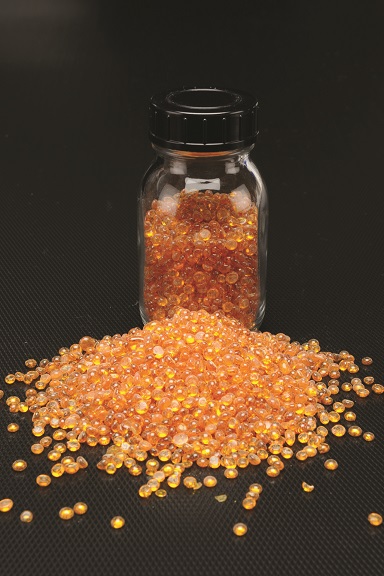 The company claims that the Vulkanox HS Scopeblue boasts a carbon footprint more than 30 percent lower than its conventionally produced counterpart thanks to the use of bio-circular acetone and renewable energy in its production process. It is being currently manufactured at an ISCC PLUS-certified plant in Germany; this mass-balanced additive retains the same chemical structure as the original product, allowing tyre manufacturers to adopt it seamlessly without altering their existing production processes.
The company claims that the Vulkanox HS Scopeblue boasts a carbon footprint more than 30 percent lower than its conventionally produced counterpart thanks to the use of bio-circular acetone and renewable energy in its production process. It is being currently manufactured at an ISCC PLUS-certified plant in Germany; this mass-balanced additive retains the same chemical structure as the original product, allowing tyre manufacturers to adopt it seamlessly without altering their existing production processes.
Zachert further said, “Times lead to change. The industry dynamics of chemicals has been adjusting to change for the last decade and will continue to see changes for the next decades. If I look into the next 10 years of the chemical industry, my personal prognosis is that you will see that the European chemical companies will more and more step out of petrochemicals and go upstream. And this is happening as we speak. My thesis also is that the European industry will focus more on niche polymers and speciality chemicals. The upstream and volume polymers will go elsewhere, where you have the raw materials and cheap energy. Countries that are destined to dominate these kinds of chemicals over the next 10 years, is the Middle East and the United States. Europe used to be the epicentre of chemicals 20-30 years ago from polymers to chemicals to pharmaceuticals.”
Then there is the shift from global supply chain to more of regional supply chain given the geopolitical situation.
“I see that with the current world with geopolitical tensions, the likelihood is high that we will go back to trade zones. And therefore, the global value chain in chemicals is one where many companies will have to rethink the global approach and turn towards a more regional approach,” added Zachert.
USTMA Predicts Slightly Higher 2026 Tyre Shipments For US Tyre Market
- By TT News
- March 05, 2026
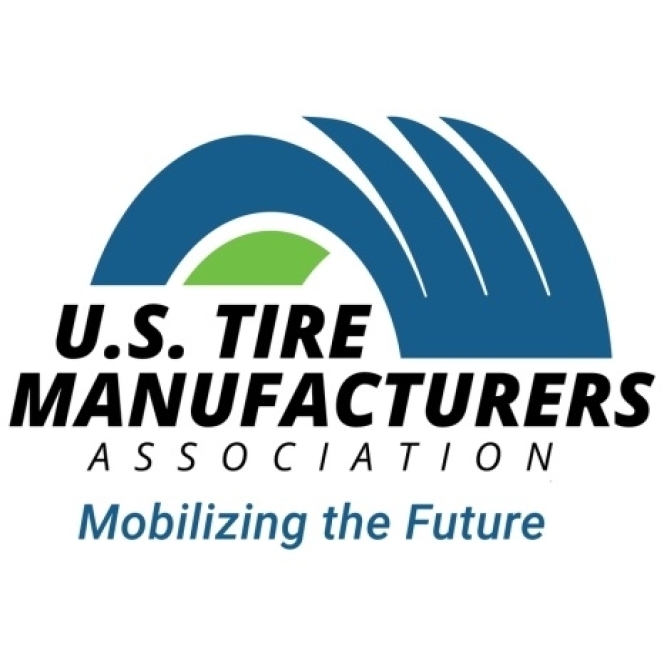
The U.S. Tire Manufacturers Association (USTMA) forecasts total US tyre shipments of 338.9 million units in 2026, up from 336.3 million units in 2025 and 332.7 million units in 2019. This figure beats the previous record of 337.3 million units in 2024.
Compared with 2025, Original Equipment (OE) the 2026 shipments for passenger, light truck and truck tyres are expected to change by 0.8 percent, 1.2 percent and 8.3 percent, respectively, with a total increase of 0.8 million units. Replacement passenger, light truck and truck tyre shipments are also projected to change by 0.6 percent, 0.8 percent and 0.2 percent, respectively, with a total increase of 1.7 million units.

(Note: All shipments in millions. Figures are rounded up.)
Bekaert's Dramix Loop Wins Prestigious ‘Industry Choice Award’ At World Of Concrete 2026
- By TT News
- March 04, 2026
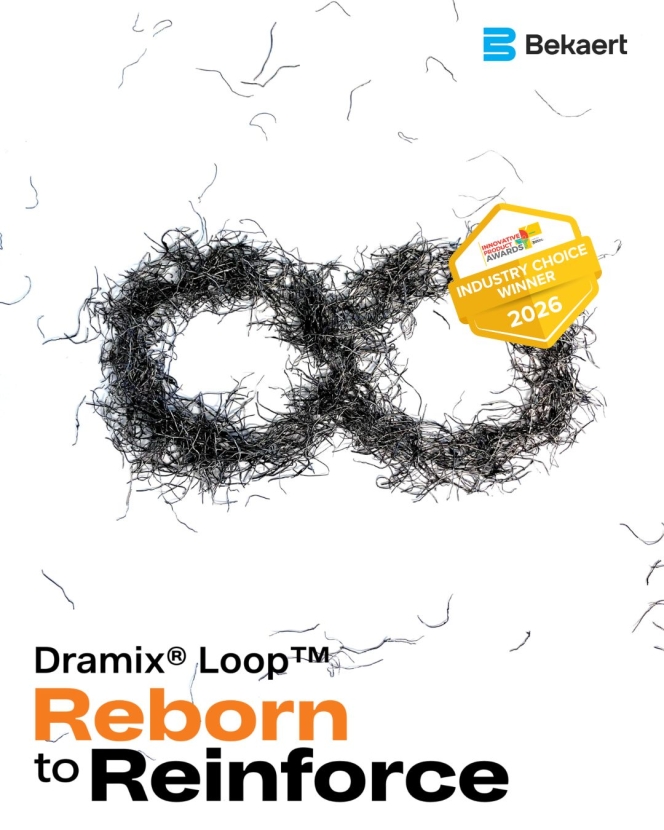
The construction industry witnessed a significant milestone in materials innovation at the recent World of Concrete 2026 exhibition. The newest addition to Bekaert's renowned Dramix steel fibre family, the Dramix Loop, has been distinguished with the prestigious Industry Choice Award in the 'Concrete Slab Materials' category. This accolade, determined by the direct votes of industry professionals including engineers, contractors and key decision-makers engaged in construction projects, is a testament to the product's resonance with those who have hands-on experience in the field.
The recognition at World of Concrete 2026 marks a notable achievement for Bekaert, as it underscores the growing industry support for circular solutions in construction. The Dramix Loop, designed to align with sustainable development goals, stood out among a competitive field of innovators all striving towards a more environmentally responsible future. The award serves as a powerful indicator that circular economy principles are not only gaining traction but are also being embraced by the wider construction community as viable and valuable approaches to modern building challenges.
This latest honour represents another significant step forward in the journey of the Dramix Loop steel fibres. The acknowledgment from peers and professionals highlights the importance of innovation that genuinely moves the construction industry forward. Bekaert has expressed its appreciation to all those who participated in the voting process, acknowledging their role in supporting this advancement. Furthermore, gratitude was extended to the organisers of the World of Concrete for their continued dedication to showcasing and celebrating groundbreaking developments that shape the future of construction materials and techniques.
- Association of Natural Rubber Producing Countries
- ANRPC
- Natural Rubber
- Monthly NR Statistical Report
ANRPC Publishes Monthly NR Statistical Report For January 2026
- By TT News
- March 03, 2026
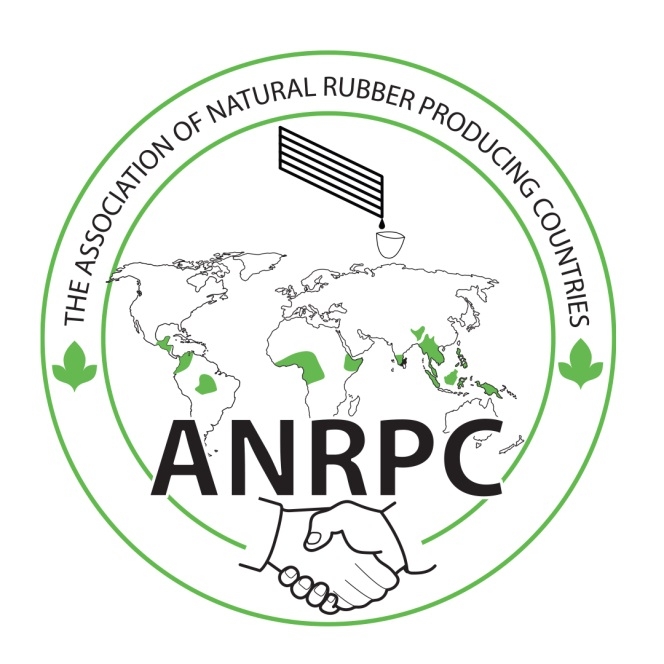
The Association of Natural Rubber Producing Countries (ANRPC) has released its Monthly NR Statistical Report for January 2026, providing an overview of key developments in the global natural rubber sector.
As per the report, a notable price rise was observed this month, driven by a combination of surging crude oil prices and heightened demand from tyre manufacturers, especially in China.
Below is a summary of the latest trends and data points defining the NR sector:

Global NR production is expected to rise by 2.2 percent in 2026 to an estimated 15.324 million tonnes, according to recent statistics from ANRPC member countries. Global demand for consumption is expected to increase by 1.4 percent to around 15.602 million tonnes annually.
The tyre industry's recovery indications reinforce the market's resilience in the face of several global economic headwinds. The current state of the market indicates a time of consolidation. This comes after recent price increases and before the cyclical wintering season, which runs from February to May and is traditionally characterised by a more constrained worldwide supply.
Bekaert Secures ISCC PLUS Certification For Steel Tyre Reinforcement
- By TT News
- February 27, 2026

Bekaert has achieved a significant sustainability milestone by securing ISCC PLUS certification for its steel tyre reinforcement products. This accomplishment highlights the company's dedication to driving innovation and working closely with tyre manufacturers to promote the widespread use of materials with high recycled content.
Historically, steel used for tyre reinforcement was not covered by ISCC PLUS. However, a partnership between Bekaert, ISCC and the certification body TÜV NORD successfully developed a structured certification path for tyre cord and bead wire with high recycled content. TÜV NORD played a key role by auditing Bekaert’s Burgos facility during a pilot phase, technically validating that the ISCC PLUS framework could be effectively applied to steel-based products. This validation paves the way for its wider acceptance in the tyre sector.
This certification builds upon the foundation laid by Bekaert’s own Recycled Content Standard, which previously set an industry benchmark for traceability and sustainable practices. The earlier standard's success was instrumental in encouraging ISCC to broaden its certification framework to encompass steel products. Although the Bekaert standard will remain valid during the transition, ISCC PLUS now offers a globally acknowledged system that guarantees uniformity and clear traceability throughout the entire supply chain.
This certification positions Bekaert as a leader in advancing certified tyre reinforcement, fostering industry-wide acceptance and generating shared benefits with tyre makers. For manufacturers, utilising ISCC PLUS-certified materials lends credibility to their sustainability assertions, simplifies the certification landscape and aids in meeting regulatory and market demands. Furthermore, their customers continue to gain from Bekaert’s dependable supply chain, which is now enhanced by verified sustainable sourcing.
Annie Xu, President – Rubber Reinforcement, Bekaert, said, "Achieving ISCC PLUS certification demonstrates our leadership in certified steel with high recycled content for tyre reinforcement. We are proud to have worked closely with ISCC and TÜV NORD to shape this framework, which will help our customers stay ahead of sustainability and regulatory expectations."
An ISCC representative said, "We welcome the successful completion of the certification process for steel tyre reinforcement under ISCC PLUS. This demonstrates that the ISCC framework can be applied to additional material categories while maintaining our established requirements for traceability and verification."
Samir Beqqal, Head of Carbon Traceability Business Entity Sustainability, TÜV NORD CERT, said, "Working with Bekaert and ISCC on this pilot certification was an important step towards applying ISCC PLUS principles to new material categories like steel. We are delighted that we were able to contribute our expertise to this process and help ensure that certified traceability and sustainability assurance can also be effectively extended to industrial materials now.”







Comments (0)
ADD COMMENT